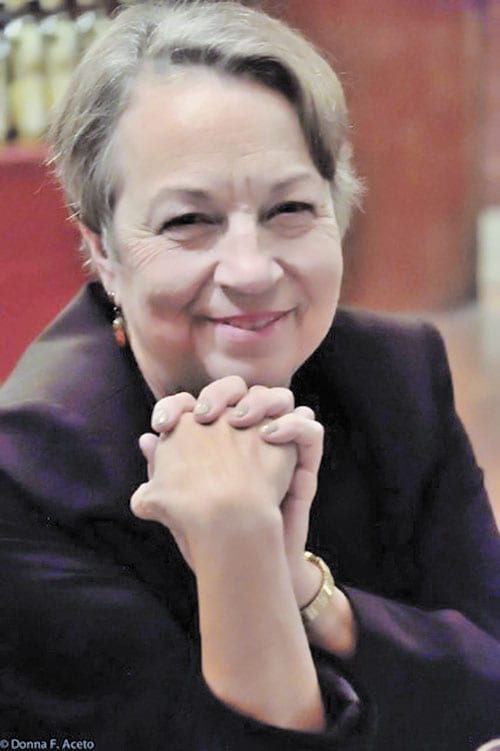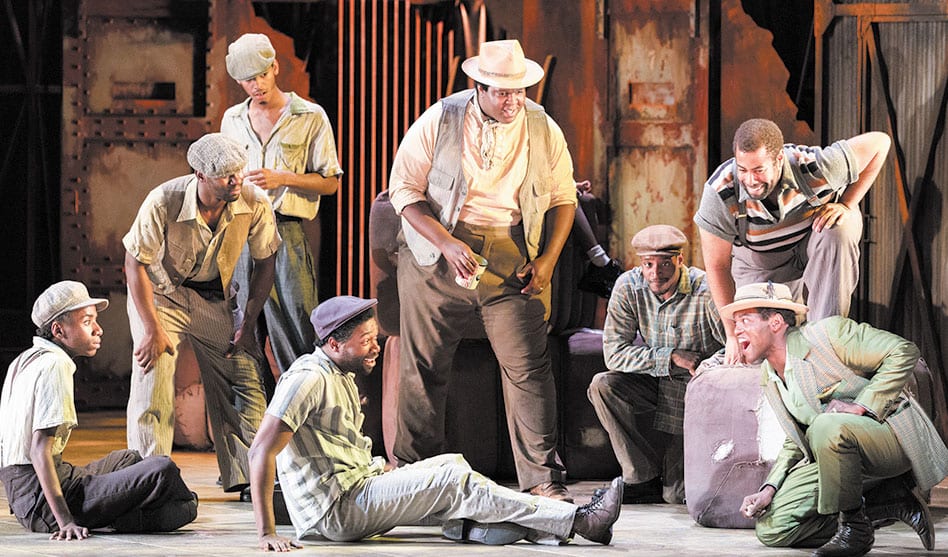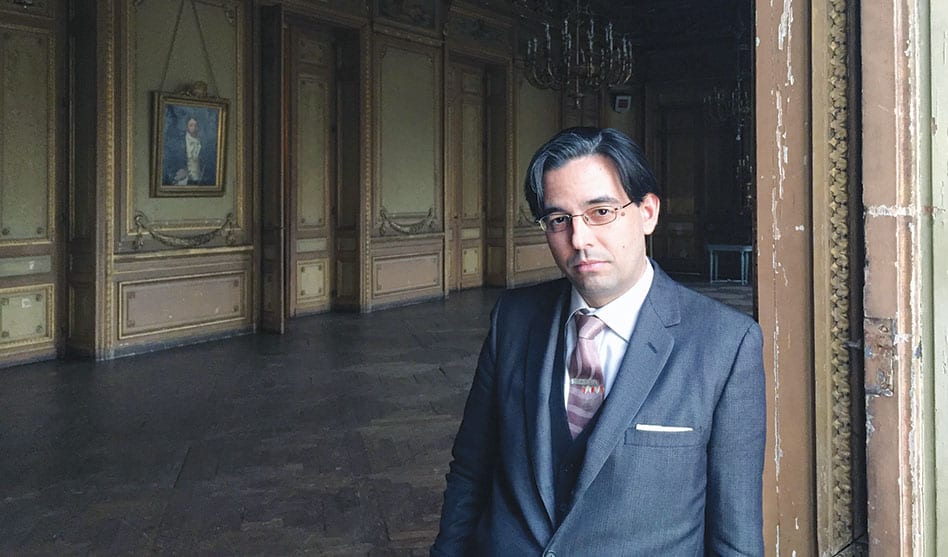Team readies its new opera about a trans man for FWO showcase
RICH LOPEZ | Contributing Writer
richlopezwrites@gmail.com
Most people are probably familiar with the story of Albert Nobbs through seeing the 2011 film starring Glenn Close. But when librettist Deborah Brevoort was presented with the idea of turning the story into an opera, she took a bold approach: She skipped referring to the movie version, and instead sourced her story from the novella by George Moore. She found everything in the book necessary for an ideal opera, although she still faced one obstacle: language.
“The book is very different from the movie,” she says. “It’s a story about a woman who had no options but to live as a man to thrive. She has this awakening, but she doesn’t have the words for what is happening.”
Set in 19th century Ireland, the plot revolves around Albert — born a woman, she reinvents her identify as a man in order to survive the times that she couldn’t as a woman on her own. Albert succeeds for years as a respected butler until she meets Hubert, who shares the same secret and who helps Albert with her awakening.

Deborah Brevoort
Along with composer Patrick Soluri, Brevoort has been polishing the libretto and score to present a capsule version at the Fort Worth Opera’s seventh annual Frontiers competition program, the company’s new opera showcase. Brevoort and Soluri are among seven teams selected to present their works at the showcase. (The FWO’s festival opens Friday; see sidebar for more information.)
While they have continued to work on Nobbs diligently while leading up to the debut, this isn’t new territory for either. Brevoort and Soluri collaborated on the opera Embedded which won Frontiers in 2013.
“Frontiers gives us an opportunity to find an opera company to commission this opera,” Brevoort says. “This is a long process, and we need resources.”
It’s an important opportunity as they refine how to incorporate the plot — which, as in the novel, takes place largely in her head at the beginning — with a musical format that conveys character. Soluri and Brevoort had to create a transformation representing Nobbs’ insular life to a developing new one.
“Albert can’t articulate that because there isn’t that word for trans or homosexual at that time,” Brevoort explains. “Music is the only language to tell what happens to him.”
“Vocally its in a lower register so that it’s more androgynous — there’s nothing too distinct,” Solveri says in a phone call. “ She’s more staccato early on, but as she opens up, Albert becomes more lyrical. Only in that first aria do we see Albert open up.”
Their tactic was to incorporate more instrumentals and dance before Albert can articulate who she is. Although a period piece, Soluri sees Nobbs as a timeless story which anyone could relate to.
“Opera is the most effective when dealing with large archetypal issues and characters. Audiences often look for those which makes it easier to connect to,” he says.
Brevoort marvels at how the novella already contained all the elements of an opera, and that they really connected with the story. She found Albert to be compelling, as did Soluri, and believes audiences, regardless of their societal opinions on trans or queer issues, will likely root for her.
“First, there are great plot twists and it’s a moving tale that feels very contemporary and theatrical,” Brevoort says. “I fell for her. I’m a straight, married woman. I’m not trans or gay, but I could relate to her. The story has the potential to expand our humanity and tolerance and compassion.”
English-language operas based on contemporary source material like movies has been a trend in recent years (from Dead Man Walking to The Fly to Angels in America), and one Soluri can embrace. “I think in this day, there is an appetite for new operas in English,” he says.
But Brevoort thinks opera has the advantage over film.
“With Albert Nobbs, I feel that the camera couldn’t go where it does in our opera. There are things that only opera can express,” she says.
The two are looking forward to seeing all that the FWO festival has to offer — and that audiences respond to what they are doing.
“I’m feeling hopeful,” Brevoort says. “The libretto is done and the music is done. And there’s been a lot of interest in this piece around the country. So now, we’re just hoping it will get picked up by a company to commission it. But regardless, we’re very enthusiastic about the opera.”
……………
FWO FESTIVAL RETURNS

The Fort Worth Opera returns this week with its festival format, covering more than two weeks of performances and events. Included in the lineup are lesbian stage director Francesca Zembello’s production of The Gershwins’ Porgy and Bess (pictured), which plays at Bass Hall April 26, 28 and 30; the world premiere of Rachel J. Peters’ Companionship at the Fort Worth Botanic Garden May 1, 3 and 5; and the Spanish-language El Pasado Nunca se Termina at Bass May 10, 11 and 12. For the full schedule of operas, lectures, and other events, visit FWOpera.org.
— A.W.J.













